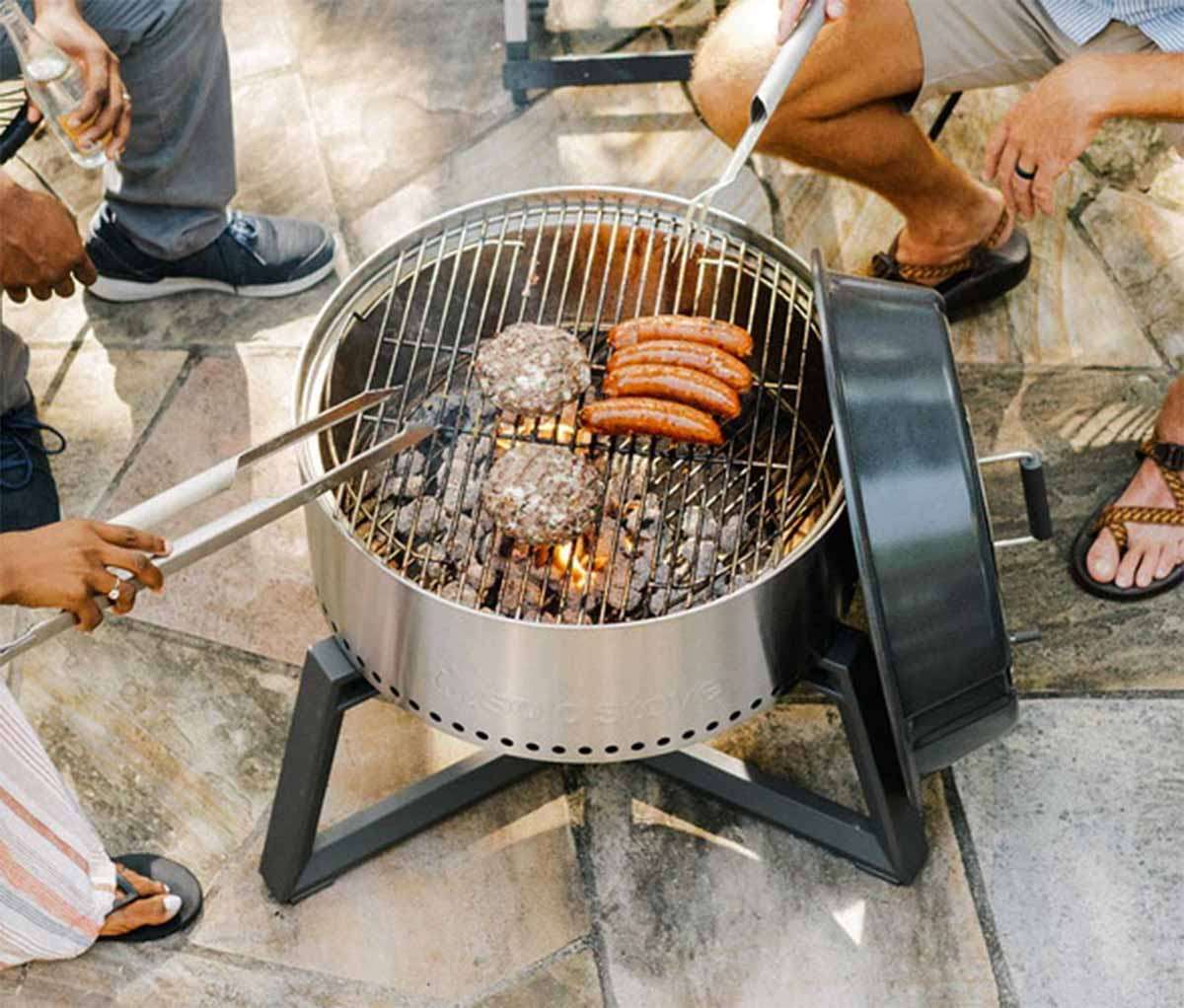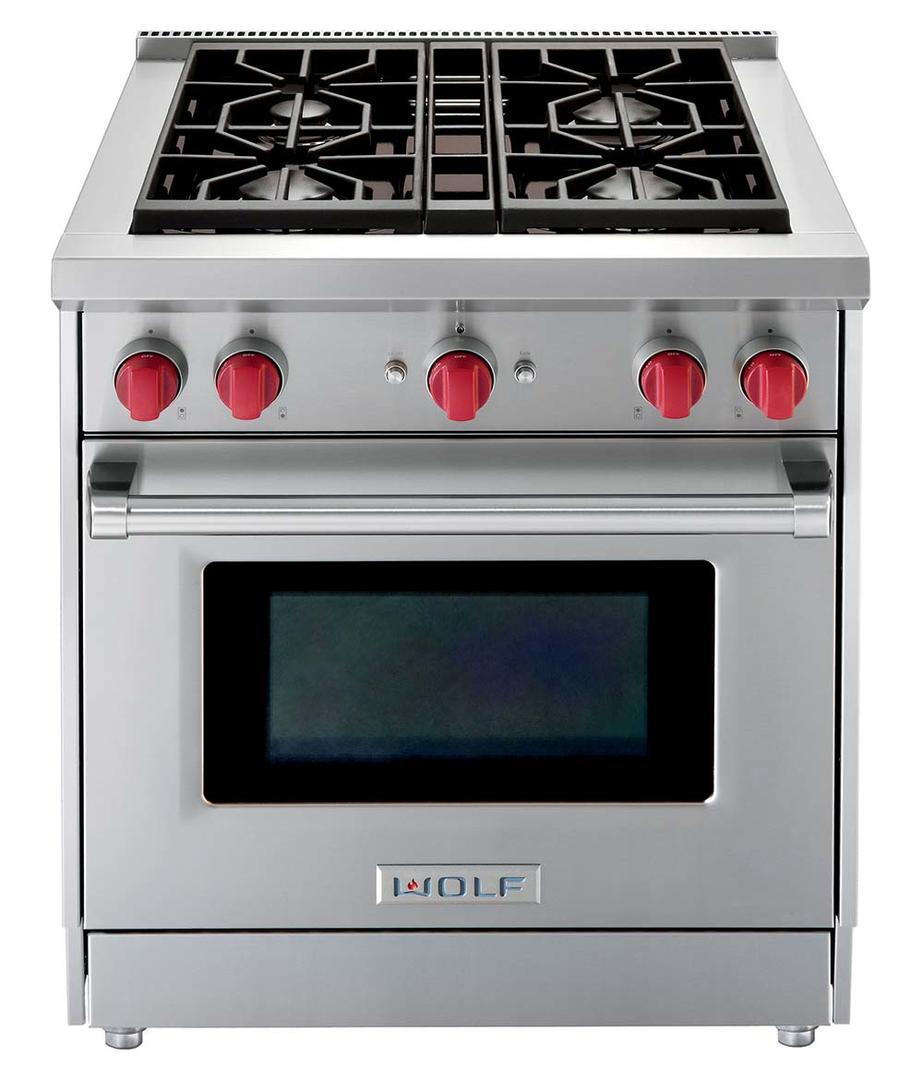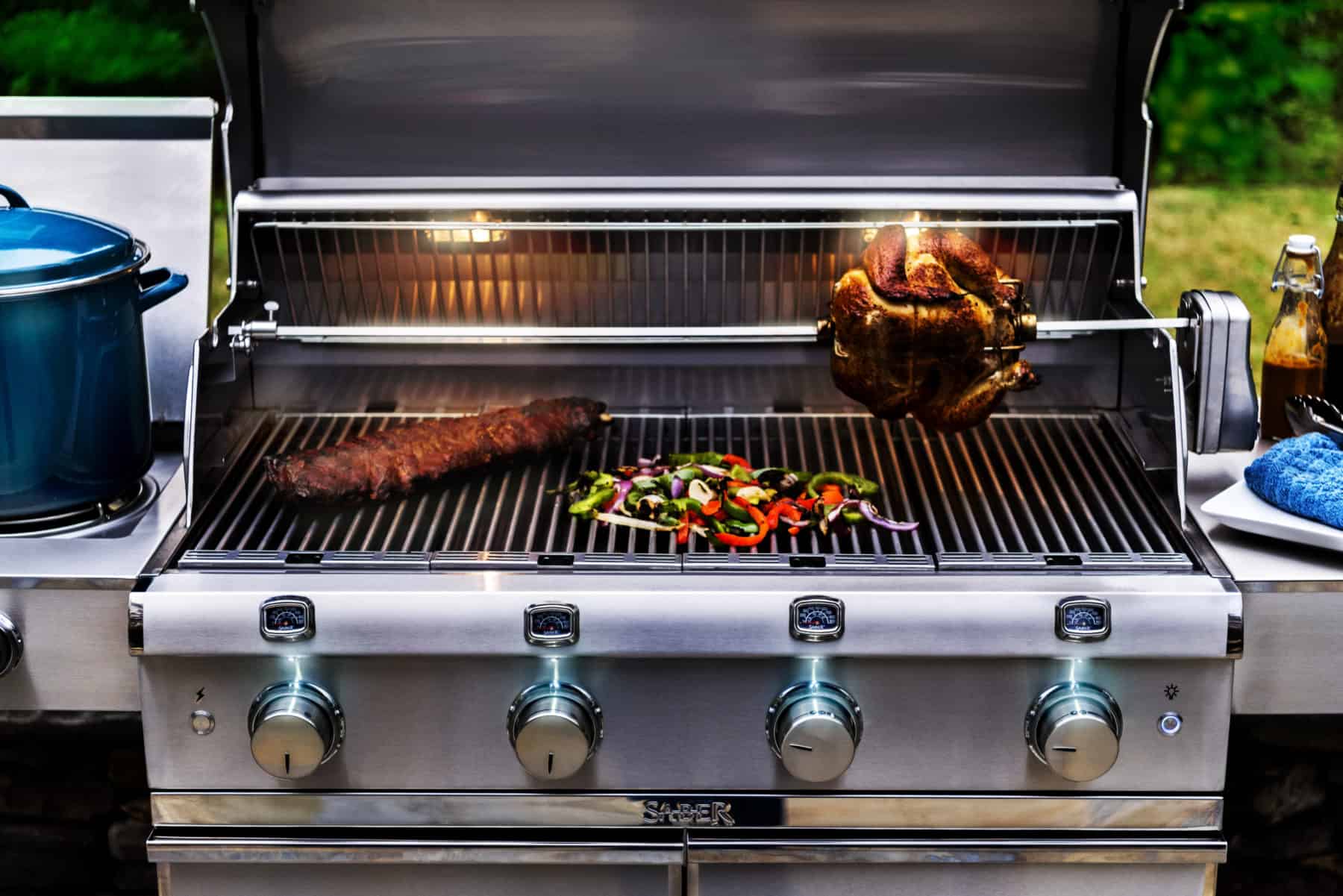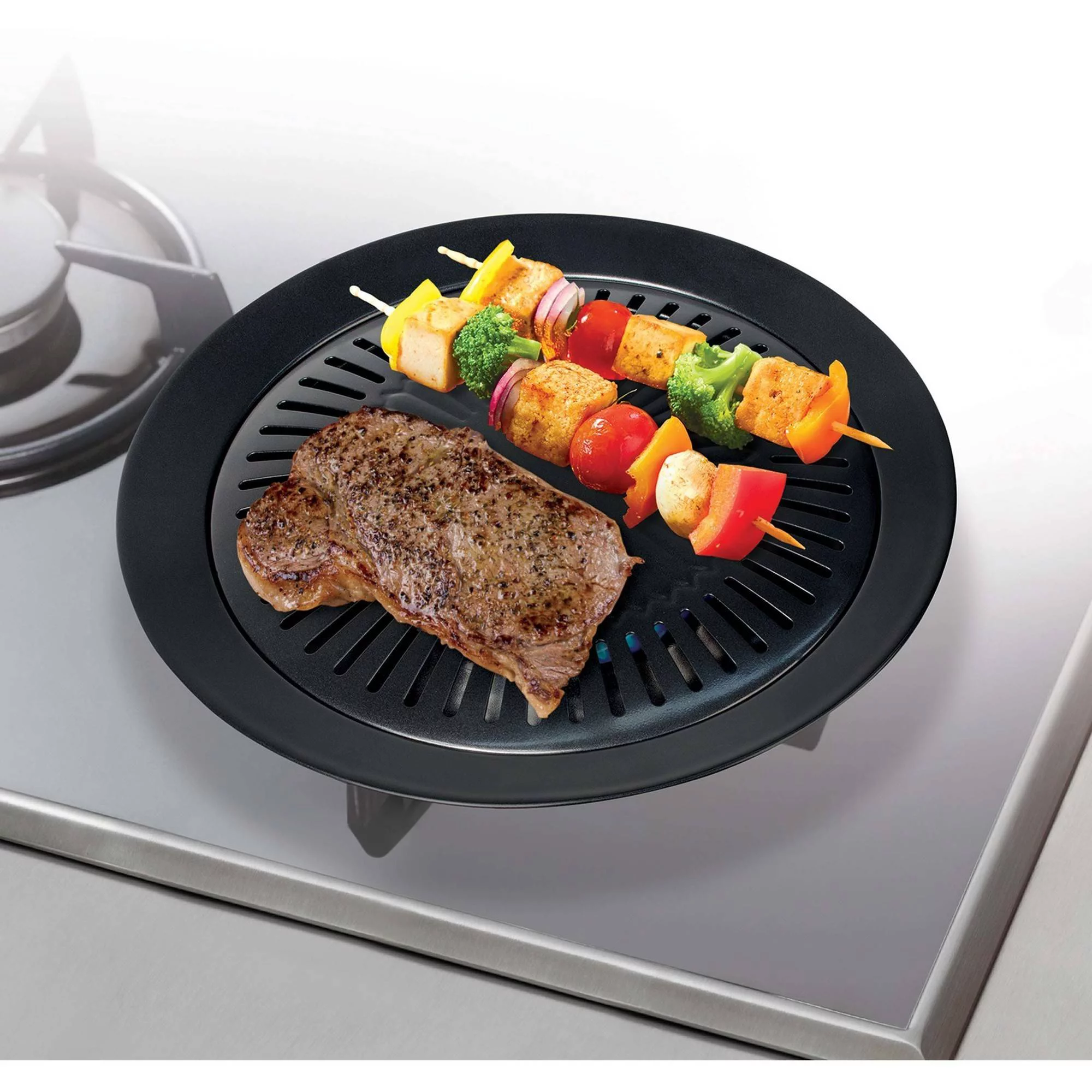Stove Grills: Versatile and Convenient Indoor Grilling Solutions
I. Introduction

A. Overview of Stove Grills
Stove grills have become a popular indoor cooking appliance, providing a convenient and versatile option for grilling without the need for an outdoor grill. The purpose of this article is to explore the features and benefits of stove grills, highlighting their advantages over traditional grilling options.
B. Introduce the Purpose of the Article: Exploring the Features and Benefits of Stove Grills for Indoor Grilling
In this article, we will delve into the world of stove grills, discussing what they are, how they work, and the many advantages they offer. Whether you live in a small apartment, have limited outdoor space, or simply prefer grilling indoors, stove grills provide a practical and efficient solution. Get ready to discover the possibilities of flavorful indoor grilling!
II. Understanding Stove Grills
A. What is a Stove Grill?
A stove grill is an indoor cooking appliance specifically designed for grilling food. It typically consists of a grill plate, heating element, and a fat drainage system. Stove grills are compact and easily placed on a cooktop or stovetop, allowing users to enjoy grilled meals without the need for an outdoor grill.
B. How do Stove Grills Work?

Stove grills work by utilizing electric or gas heat sources to heat the grill plate. The heating element underneath the grill plate generates consistent heat, allowing for even cooking and grill marks on the food. The fat drainage system helps to minimize grease and create healthier grilled dishes.
C. Advantages of Stove Grills over Traditional Grilling Options
Stove grills offer several advantages over traditional grilling options:
- Convenience and Versatility: Stove grills are compact and portable, making them suitable for small living spaces or outdoor use. They allow users to grill a variety of foods, including meats, vegetables, sandwiches, and even pancakes or eggs, offering a range of cooking possibilities in one appliance.
- Heat Control and Even Cooking: Stove grills often feature adjustable heat settings, giving users control over the cooking temperature. This ensures even cooking and allows for perfect grilling results every time, without the need for constant monitoring or adjusting of the heat source.
- Easy to Clean and Maintain: Stove grills are designed with user-friendly features that make cleaning and maintenance a breeze. Many models have removable and dishwasher-safe grill plates, as well as non-stick surfaces that prevent food from sticking and simplify the cleaning process.
IV. Benefits and Applications of Stove Grills

A. Convenient Indoor Grilling
- All-Season Grilling Solution
Stove grills offer the convenience of indoor grilling all year round, regardless of the weather conditions. Whether it’s raining, snowing, or too hot outside, you can still enjoy the flavors and experience of grilling indoors.
- No Need for Outdoor Space or Weather Considerations
With a stove grill, you don’t need a backyard or outdoor space to enjoy grilled dishes. Stove grills can be used in small apartments, condos, or even on camping trips where traditional grills might not be feasible. You can satisfy your grilling cravings anytime and anywhere.
B. Healthier Cooking Options
- Reduced Fat and Grease
Stove grills are designed with a fat drainage system that helps to reduce the amount of fat and grease in your grilled food. Excess fat drips away, resulting in healthier meals without sacrificing flavor. This makes stove grills a great option for those who are conscious about their fat intake.
- Retention of Nutrients and Flavors
Compared to traditional outdoor grills, stove grills help retain more nutrients and flavors in your food. The controlled heat and direct contact with the grill plate allow for quick and efficient cooking, preserving the natural juices and flavors of the ingredients.
C. Time and Energy Efficiency

- Quick Preheating and Cooking Times
Stove grills typically have fast preheating times, allowing you to start grilling your food quickly. The direct heat from the grill plate ensures even and efficient cooking, reducing the cooking time compared to traditional grills.
- Lower Energy Consumption Compared to Traditional Outdoor Grills
Stove grills are generally more energy-efficient than traditional outdoor grills. They require less energy to heat up and maintain the desired temperature, resulting in lower energy consumption and potentially lower utility bills.
V. Factors to Consider When Choosing a Stove Grill
A. Size and Cooking Surface Area
Consider the size of the stove grill and its cooking surface area, ensuring that it can accommodate the quantity of food you typically grill. If you frequently cook for larger groups, opt for a stove grill with a larger surface area.
B. Temperature Control and Heat Distribution
Look for a stove grill that offers precise temperature control, allowing you to adjust the heat according to the specific requirements of different foods. Additionally, ensure that the stove grill provides even heat distribution for consistent cooking results across the grill surface.
C. Material and Durability

Choose a stove grill made from high-quality materials that can withstand high temperatures and frequent use. Stainless steel and cast iron are popular choices for their durability and heat retention properties.
D. Additional Features and Accessories
Consider any additional features or accessories that might enhance your grilling experience. This can include temperature gauges, removable grill plates, non-stick surfaces, and adjustable grilling positions. These features can add convenience and versatility to your cooking sessions.
VI. Maintenance and Cleaning Tips for Stove Grills
A. Cleaning After Each Use
After using a stove grill, allow it to cool down before starting the cleaning process. Remove the grill plate and clean it with warm, soapy water or follow the manufacturer’s instructions. Wipe down the rest of the grill surface and ensure all grease and food residues are removed.
B. Proper Storage and Maintenance
Store your stove grill in a cool, dry place when not in use. Avoid storing it in humid areas or exposing it to moisture. Regularly inspect and maintain your stove grill, checking for any signs of damage or wear and tear. Follow the manufacturer’s guidelines for proper maintenance and care.
In conclusion, stove grills offer the convenience of indoor grilling, healthier cooking options, and time and energy efficiency. When choosing a stove grill, consider factors such as size, temperature control, material, and additional features. Proper maintenance and cleaning will ensure the longevity and optimal performance of your stove grill.
Now that you’re equipped with knowledge about the benefits and factors to consider, it’s time to start grilling delicious meals from the comfort of your home with a stove grill. Enjoy the flavors and experience of grilling conveniently indoors!
